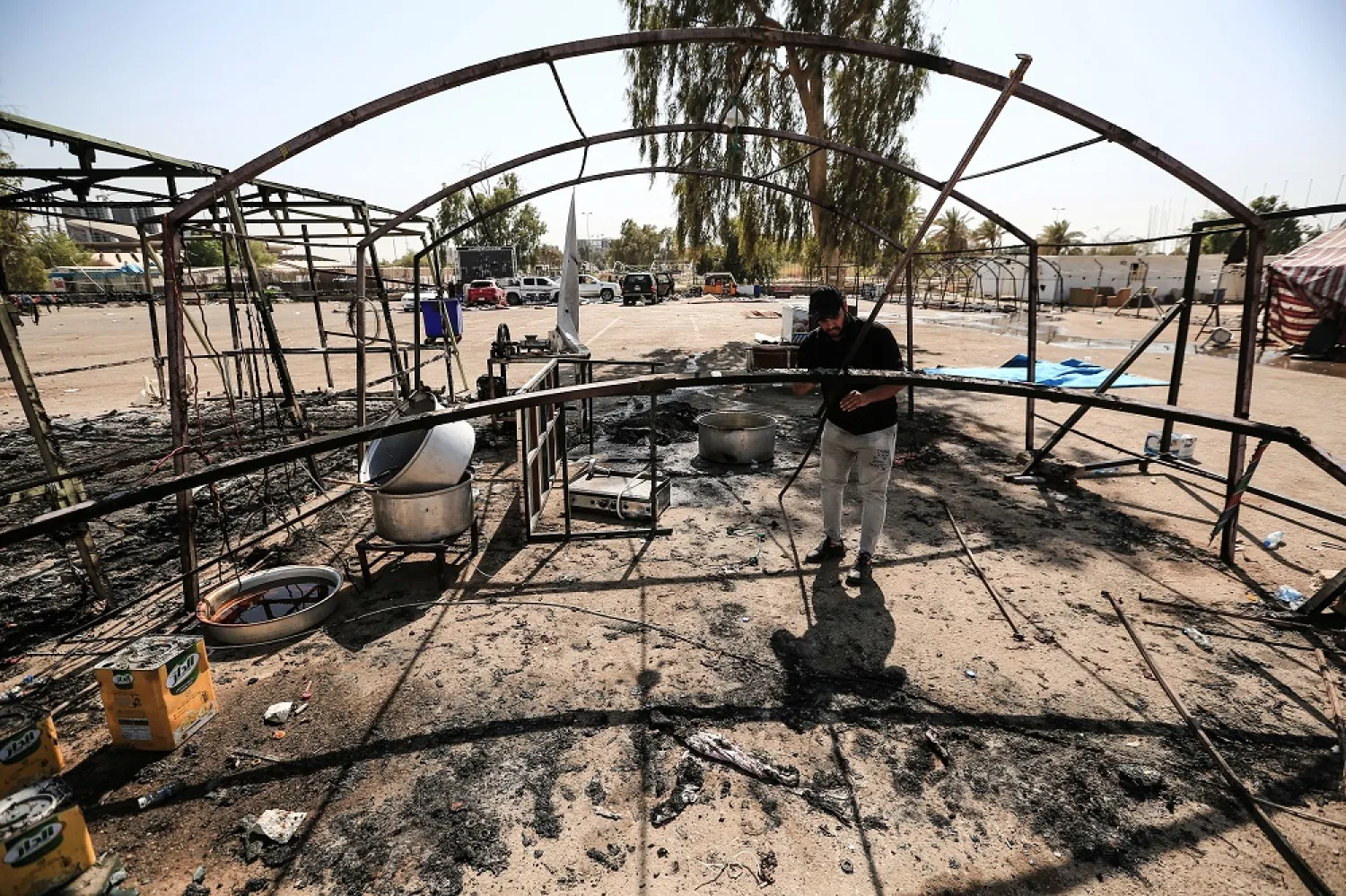Iraqi and foreign powers were mostly unanimous on Tuesday in praising Shiite cleric Moqtada al-Sadr for calling off the protests by his supporters in Baghdad in wake of the violence that erupted on Monday.
All Iraqi parties, but one, praised the move as “national” and as having spared bloodshed in Iraq.
Only former Prime Minister Nouri al-Maliki, a longtime rival of Sadr, was critical of the cleric.
“Force cannot impose a political reality against the will of others,” he declared.
“The one who sparks the war cannot be the one to stop it, control its course or reap its spoils,” he added.
Rather, he said internal and foreign factors are responsible for starting or halting the “bloody scene.”
Maliki thanked the Popular Mobilization Forces (PMF) for their “commitment and discipline” and calm approach towards crises.
He also thanked the members of the armed forces “who showed great discipline and patience as they were confronted with arbitrary fire and rockets.”
In contrast, caretaker Prime Minister Mustafa al-Kadhimi praised Sadr’s move, saying it “reflects the highest levels of nationalism and keenness on protecting Iraq.”
Sadr’s armed supporters, who clashed with security forces in the capital began to withdraw from the streets Tuesday, restoring a measure of calm after a serious escalation of the nation's political crisis.
Following two days of deadly unrest that sparked fears instability might spread throughout the country and even the region, Sadr told his supporters to leave the government quarter where they had rallied.
Within minutes, some could be seen heeding the call, dismantling their tents and walking out of the area known as the Green Zone.
Sadr's move to de-escalate tensions raised questions of how issues such as the dissolution of parliament and the holding of early elections will be handled between rival groups.
Kadhimi, in a speech late Tuesday, threatened to vacate his post if the political crisis continues.
Protesters supporting Sadr's rivals in the pro-Iran Coordination Framework also withdrew from their demonstration outside the government zone.
Iraq’s government has been deadlocked since Sadr’s party won the largest share of seats in October parliamentary elections but not enough to secure a majority government. That led to months of political infighting between Sadr's Shiite followers and his Iran-backed Shiite rivals before it became violent Monday.
The chaos began when Sadr announced he would resign from politics. Many dismissed the move as a ploy to gain greater leverage, and his supporters stormed the Green Zone, home to Iraqi government offices and foreign embassies. They eventually breached the gates of the government palace, rushing into its lavish salons and marbled halls.
At least 30 people were killed, officials said, before Sadr urged those loyal to him to go home, following pleas for restraint from several Iraqi officials and the United Nations.
“This is not a revolution,” the cleric said in a televised address.
Kadhimi said an investigative committee was formed to uncover who shot at al-Sadr’s supporters during protests Monday, “despite our clear and strict orders prohibiting the use of live ammunition.”
“It is also imperative to determine who opened fire and launched rockets and mortars on governmental institutions throughout the night,” he said in the speech. “Undisciplined groups will face legal consequences.”
In addition to the dozens killed, over 400 were wounded, two Iraqi medical officials said Tuesday.
Sadr's initial announcement that he would leave politics implicitly gave his supporters the freedom to act as they see fit. His speech on Tuesday effectively reined them back in.
President of the Kurdistan Region Nechirvan Barzani praised Sadr, saying he supports his “national and responsible position” to withdraw his followers.
He reiterated his call for dialogue to all parties and forces to resolve the country’s political crisis and “save Iraq from this difficult situation.”
Head of the Fatah Alliance, Hadi al-Ameri lauded Sadr’s “brave initiative” to put an end to the violence. “It came at a critical time when the enemies were keen on expanding the fighting between brothers,” he remarked in a statement.
Head of the Sovereignty Alliance, Khamis Khanjar praised Sadr’s “historic” speech to end strife.
“It is time for national forces to begin forming a new phase that paves the way for early elections,” he tweeted.
Arab League Secretary-General Ahmed Aboul Gheit praised Sadr’s call to end the violence in Iraq, calling on all parties to comply with it.
The United Nations Assistance Mission for Iraq welcomed Sadr’s announcement, tweeting: “Restraint and calm are necessary for reason to prevail.”









